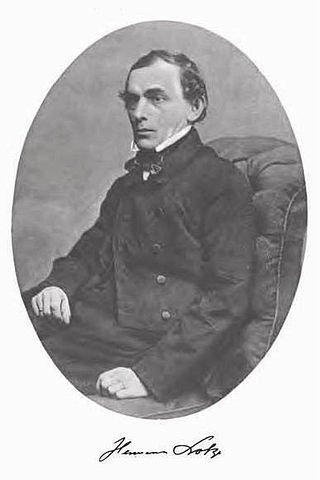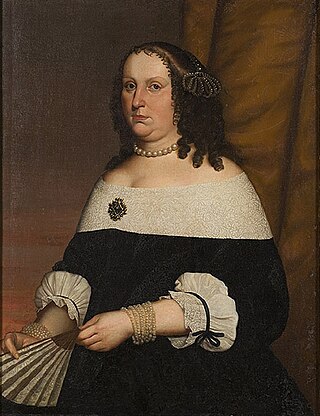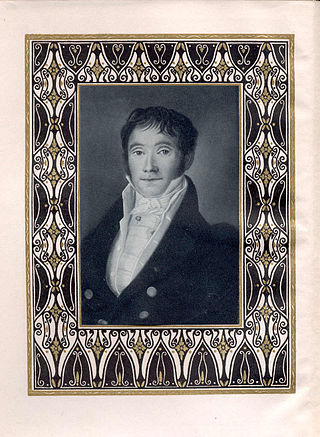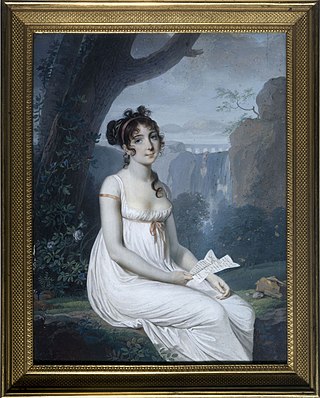Related Research Articles

Johann Gottfried Eichhorn was a German Protestant theologian of the Enlightenment and an early orientalist. He was a member of the Göttingen School of History.

Rudolf Hermann Lotze was a German philosopher and logician. He also had a medical degree and was well versed in biology. He argued that if the physical world is governed by mechanical laws and relations, then developments in the universe could be explained as the functioning of a world mind. His medical studies were pioneering works in scientific psychology.

Carl Gustav Jacob Jacobi was a German mathematician who made fundamental contributions to elliptic functions, dynamics, differential equations, determinants, and number theory. His name is occasionally written as Carolus Gustavus Iacobus Iacobi in his Latin books, and his first name is sometimes given as Karl.

Friedrich Hermann Hund was a German physicist from Karlsruhe known for his work on atoms and molecules.

Johann Friedrich Gmelin was a German naturalist, chemist, botanist, entomologist, herpetologist, and malacologist.

Franz Ernst Neumann was a German mineralogist and physicist.

Gustav Friedrich Hertzberg was a German historian, author and publicist. He was the Honorary Professor of History at the University of Halle from 1889 until shortly before his death.

Carl Friedrich von Rumohr was a German art historian, writer, draughtsman and painter, agricultural historian, connoisseur of and writer about the culinary arts, art collector and patron of artists.

Countess Palatine Christina Magdalena of Kleeburg of the House of Wittelsbach, Margravine of Baden-Durlach. She was the daughter of John Casimir, Count Palatine of Kleeburg and Princess Catherine of Sweden. Christina Magdalena was a sister of Charles X of Sweden, and grew up in Sweden.
Friedrich V of Zollern nicknamed, the Illustrious was a Count of Zollern.

Gustav Friedrich Klemm was a German anthropologist and librarian. He spent much of his career as the Director of the Royal Library in Dresden. The British Museum purchased his large collection of central European prehistoric antiquities in 1868.

Johann Karl Heinrich Wuttke was a German historian and politician.

Benedictus Gotthelf Teubner was a German bookseller and the founder of a publishing company.
Friedrich August Carus was a German philosopher. He was the father of surgeon Ernst August Carus (1797–1854).
Kutka, also styled as Kutga or Kutku, is a creation deity of the Itelmens of Kamchatka. Some sources indicate he was a supreme deity but others see him being subsidiary to Dusdaechschitsh, a uniquely supreme being. His wife, Chachy, is smarter than him. His son is Haetsch.

Carolina Crespi, later known as Carolina Crespi-Bianchi and Carolina Bianchi, was an Italian soprano active on the opera stages of Paris and Northern Italy from 1803 to 1820. She was born in Prague, the daughter of the soprano Luigia Prosperi-Crespi (1770–1824). Crespi was married to the tenor Eliodoro Bianchi and appeared with him in three world premieres at La Scala.
Fritz Eberhardt Klemm was a German musicologist and journalist. He was one of the leading Hanns Eisler experts of the GDR.
Gustav Mensching was a German theologian who was Professor of Comparative Religious Studies at the University of Bonn from 1936 to 1972.
Friedrich Gustav Schilling was a German musicologist, editor and lexicographer.

Paula Freiin von Wächter-Spittler was a German painter.
References
- ↑ Friedrich Majer (1803). Allgemeines Mythologisches Lexicon (in German). Vol. 1. Verlag des Landes-Industrie-Comptoirs.
- ↑ Gustav Friedrich Klemm (1843). Allgemeine Cultur-Geschichte der Menschheit (in German). Vol. 2. B. G. Teubner.
- 1 2 Heinrich August Pierer (1835). Universal-lexikon, oder Vollständiges encyclopädisches wörterbuch. H.A. Pierer.
- ↑ Rousseau, George Sebastian; Porter, Roy (1987). Sexual Underworlds of the Enlightenment. p. 270. ISBN 0719019613.
- ↑ Gustav Friedrich Klemm. Die Jäger und Fischervölker der passiven Menschheit Allgemeine Cultur-Geschichte der Menschheit. Teubner, 1843. pp. 321–324.
